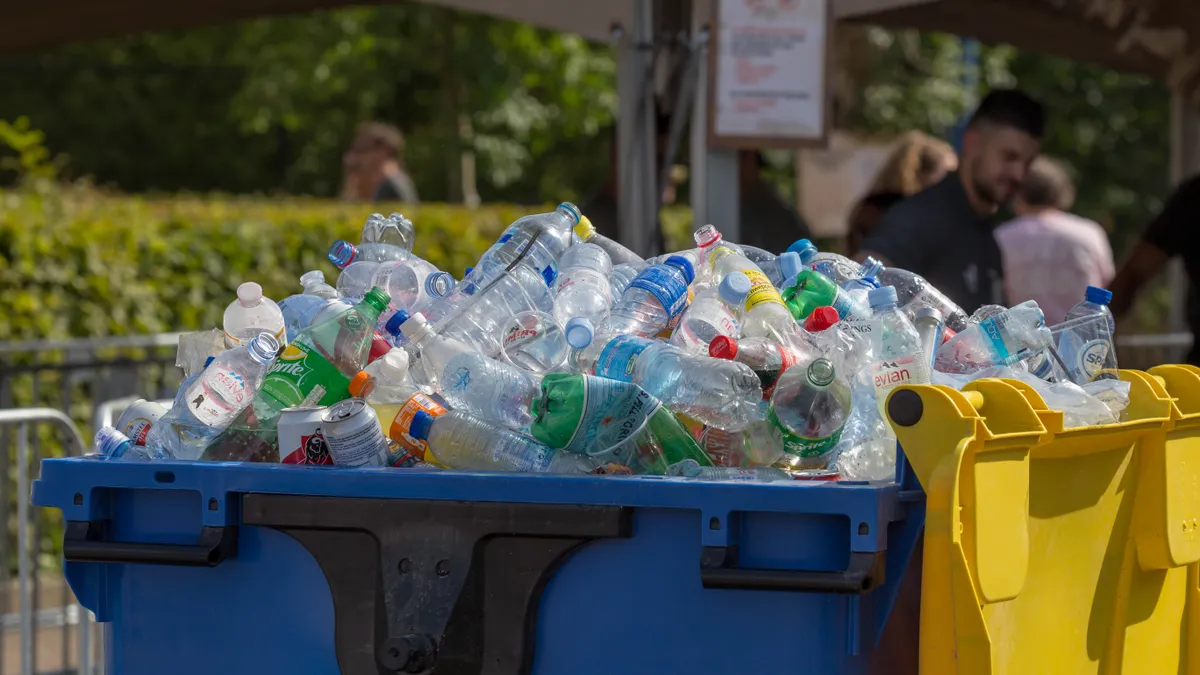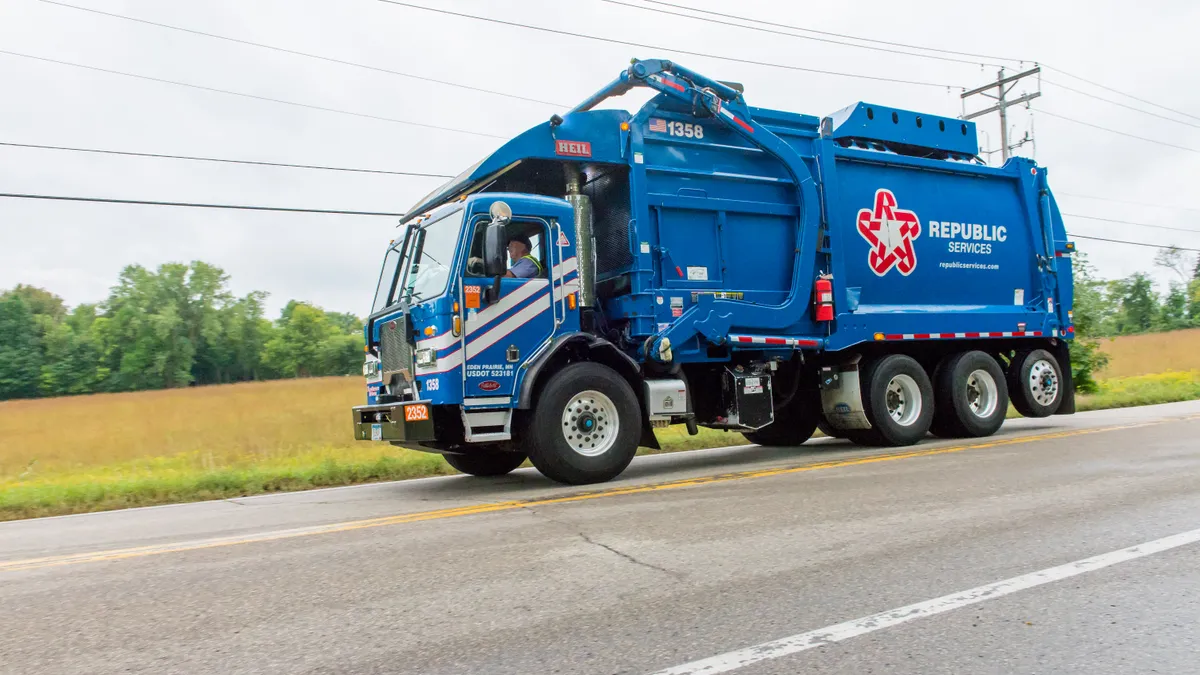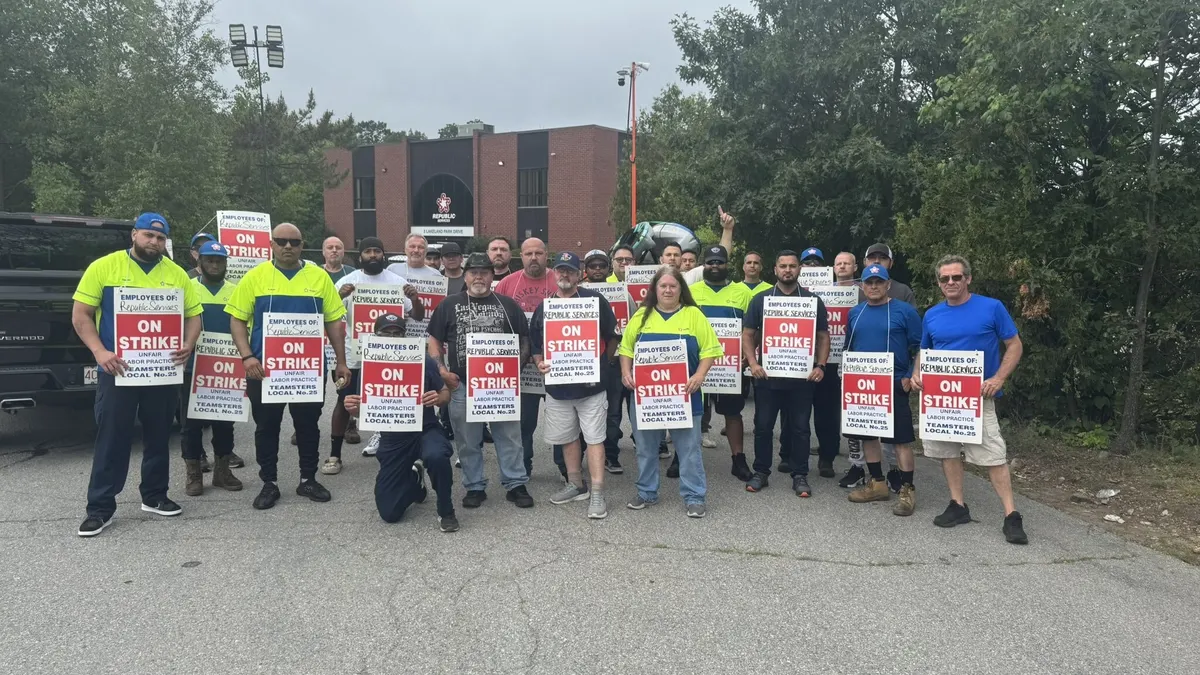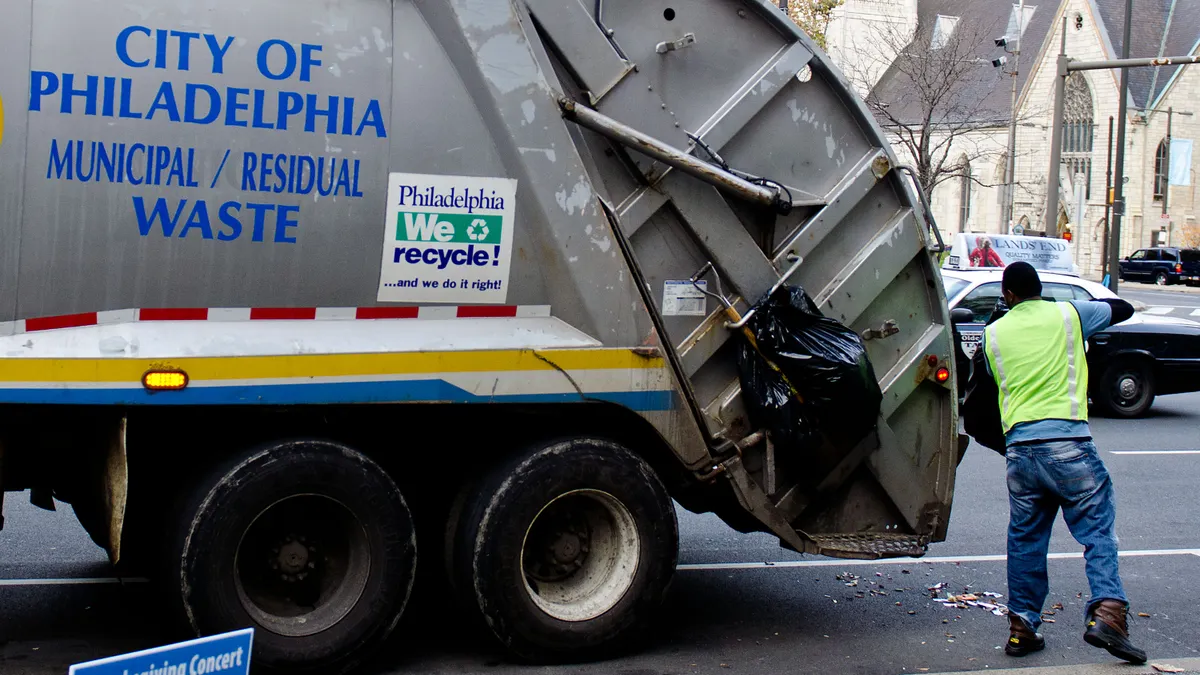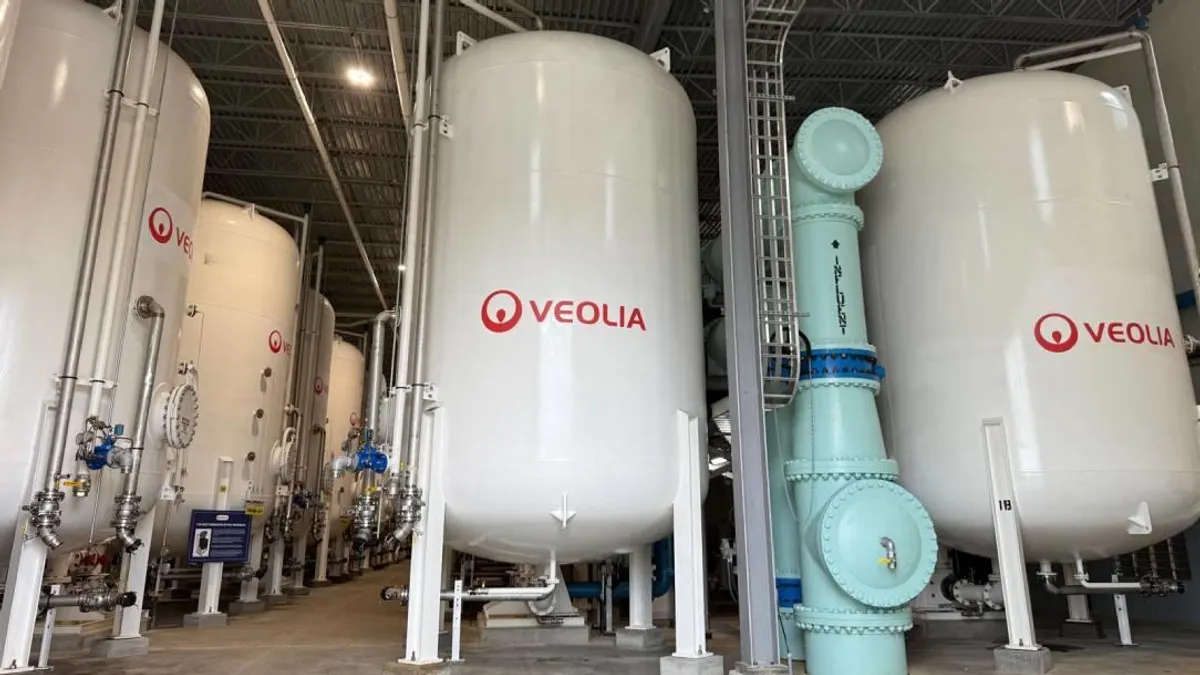A group of public and private stakeholders have launched a high-profile plastics initiative establishing near-term targets for U.S. circular economy efforts.
Dubbed the "U.S. Plastics Pact," the collaborative is led by The Recycling Partnership (TRP) and the World Wildlife Fund (WWF) and launched as part of the Ellen MacArthur Foundation's global Plastics Pact network. The initiative was announced on Aug. 20 as part of this year's virtual GreenBiz Circularity conference.
More than 60 "activators of the pact" across the manufacturing and supply chain have signed on, including major trade organizations like the Solid Waste Association of North America (SWANA), the Institute of Scrap Recycling Industries (ISRI), and the National Waste and Recycling Association (NWRA). Municipal departments in places including Austin, Texas, and Phoenix, Arizona, are also part of the pact, as are recyclers like Eureka Recycling, Balcones Resources, and EcoCycle. Corporations like The Coca-Cola Company, Target, Nestlé, Unilever United States, and Walmart are included as well, while Terracycle, Closed Loop Partners, the Association of Plastic Recyclers, and many others round out the diverse group.
"We engaged members of the entire plastics value chain," said Sarah Dearman, executive director for TRP's Circular Economy Accelerator, adding that process began as far back as last November.
As part of the pact, members have agreed to collectively deliver on four major targets, including defining a list of "problematic or unnecessary" packaging by 2021 and taking steps to eliminate those items by 2025. The remaining three goals all set 2025 as the year by which stakeholders must: undertake ambitious actions to effectively recycle or compost 50% of plastic packaging; strive to ensure all plastic packaging is 100% reusable, recyclable, or compostable across the United States; and ensure average recycled content or responsibly sourced bio-based content in plastic packaging will be at least 30%.
ISRI Vice President of Advocacy Adina Renee Adler said the pact pairs with the organization's own design principles and "should inspire producers to design with recycling in mind and to incorporate more recycled plastics in the manufacture of new products."
SWANA President and CEO David Biderman similarly praised the goals as "ambitious" and key to achieving national recycling targets, while NWRA President and CEO Darrell Smith said his organization was invested in the pact as a "stakeholder in the recycling supply chain."
More than 850 organizations and other key players around the world are part of the Plastics Pact network, which consists of seven pacts across Africa, Latin America, and Europe. Juliet Lennon, project manager for the Ellen MacArthur Foundation's New Plastics Economy initiative, said the United States represents a "challenging but exciting" new part of that group.
"[It's] the scale of the country, the scale of the economy, and also the types of organizations you have in the country," Lennon said, pointing to the diversity of the U.S. supply chain along with the "scale and speed" at which the country operates and takes part in global systems.
Backers said key parts of the commitment include transparency and consistent reporting. The pact's progress will be monitored through WWF’s ReSource: Plastic Footprint Tracker, a resource with a methodology for keeping tabs on the "plastic footprints" of companies. An annual report will be produced and made publicly available based on that monitoring system, the groups said.
Next steps for the effort will include the creation of a roadmap, which will establish steps for achieving the targets outlined by the pact. An advisory council will give input during that process, consisting of 10 members of the pact: Austin Resource Recovery, Eureka, Walmart, and Coca-Cola, along with Amcor, Balcones, Grove Collaborative, Mars, Target, and Unilever. TRP offered the current U.K. roadmap as an example of what a U.S. equivalent might resemble. That pact endorses extended producer responsibility, or EPR, although there is no confirmation a U.S. pact would do the same.
Several major brands involved with the pact indicated it would help them meet their individual recycling and plastic waste reduction targets. "We have set aggressive targets to tackle plastic waste, but they cannot be delivered by us acting alone," said Viviana Alvarez, Unilever's head of sustainability for North America.
Some are skeptical of the pact's voluntary nature and also of its targets. Jan Dell, an independent engineer with the Last Beach Cleanup, said she felt the 2025 timeline was part of a "delay tactic" allowing companies to continue using non-recyclable shrink sleeve labels on their products. She also said the announcement lacked a focus on important issues like major fires at plastics recycling facilities.
"Instead of trying distract with future pledges, the companies should take responsibility and action now to stop harms caused by their excessive use of plastic packaging," she said.
John Hocevar, Oceans Campaign Director for Greenpeace USA, voiced optimism about the pact's multi-stakeholder approach and the involvement of retailers and brands. Still, he offered some concerns around its recycling goals.
"I would hate to see the pact add further weight to the idea that most types of plastic garbage can and should be recycled, as that does not reflect the reality that most types of plastic packaging have little or no value or market," Hocevar said. "The gold standard we should be striving for involves shifting away from single use entirely, and investing in re-use, re-fill, and package-free approaches."
As You Sow, a shareholder advocacy group, and the Container Recycling Institute have also expressed some skepticism, particularly around the pact's voluntary goals. Both groups told Plastics News the pact would benefit from supporting national legislation on EPR or a container deposit bill if the goals are going to be achievable.
Different interpretations of recycling may also prove divisive for stakeholders. Keith Christman, managing director of plastic markets for the American Chemistry Council, said in a statement that "advanced recycling" will be key to meeting recycled content goals. Advanced recycling, often grouped with "chemical recycling," has been widely criticized by climate and environmental groups.
But pact backers are optimistic about success given the scope of the group and their willingness to commit even during the coronavirus pandemic.
"It's a testament during this challenging time to their support for these goals," said TRP's Dearman. "There's a recognition that the challenges we face on plastics are not going away and that we can't slow down."


